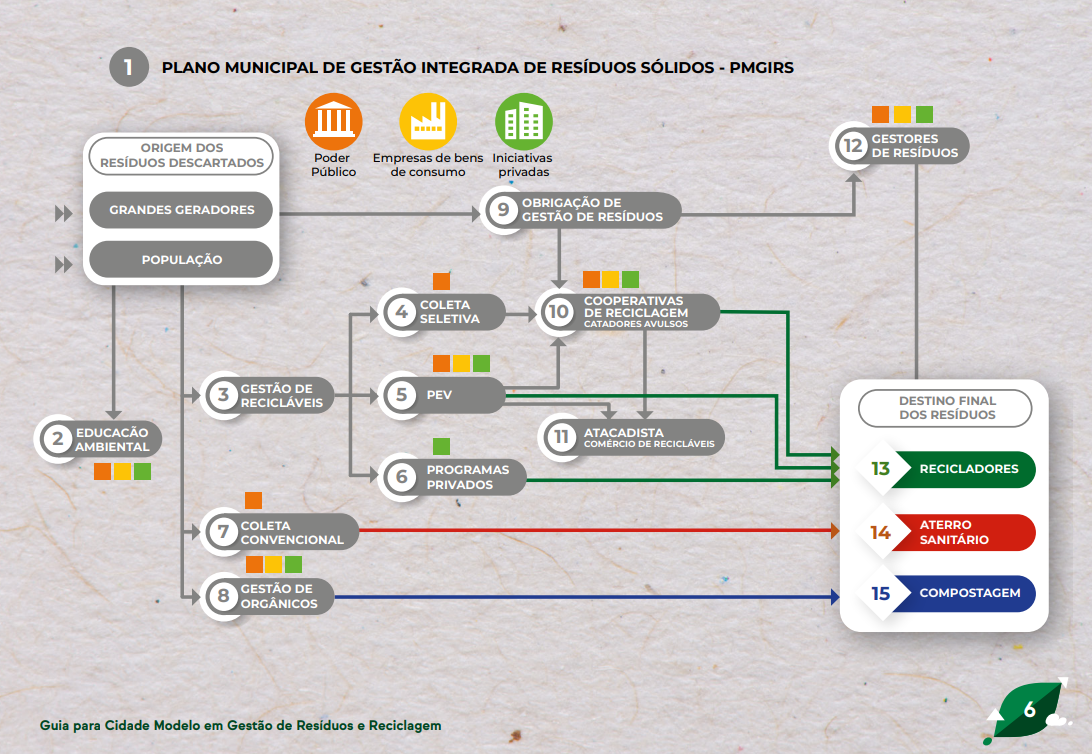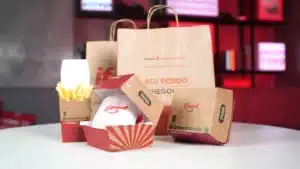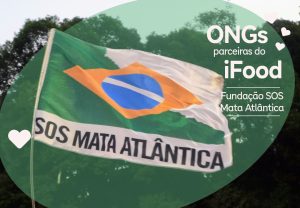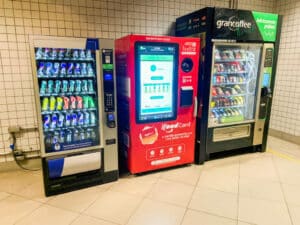Click here to download the guide in PDF
iFood launches this Thursday (01/9) in Fortaleza (CE) the “Guide for a Model City in Waste Management and Recycling”, a publication created to guide municipalities on how they can include effective recycling actions. The initiative arrives to support the goals of iFood Regenerates, the company's plan to make a positive environmental impact, which has as one of its objectives the improvement of Brazil's recycling chain.
The capital of Ceará was the first city to adopt this waste management model, transforming iFood into its strategic partner in the Greener Fortaleza Program. The guide, prepared for public managers, companies and citizens across the country, is available for other city halls to join.
The implementation of the methodology proposed in the Guide (find out more below) will begin with the registration of restaurants and establishments that are located on the Fortaleza waterfront and that are interested in participating in the project.
Solid waste from these locations will be collected by electric tricycles driven by waste picker associations registered with the city hall, promoting sustainable urban mobility. Furthermore, the maintenance and installation of recycling bins.
The publication, the result of a partnership with Manuia Consulting, is the result of an immersion in the challenges of recycling waste in the country and was prepared based on the Policy and the National Solid Waste Plan (PNRS).
Brazil produces 79 million tons of urban solid waste per year. In 2018, of this amount, 92% was collected from homes and streets, while 8% was not even collected by local services. Only 4% of the waste collected is recycled and a large part goes to landfills (and not landfills).
What's in the Guide?
The publication shows and details the ideal flow of waste management, which ranges from the preparation of the Municipal Plan for Integrated Solid Waste Management (PMGIRS) to the promotion of composting programs.
The Guide highlights the importance of carrying out a diagnosis of the participating cities, which will serve as a basis for planning improvements to the solid waste management system and explains the responsibilities of the three main actors in this chain (public authorities, consumer goods companies and the private sector) in each of the 15 items of the optimal flow.
Each chapter is a dive into each stage, with contextualization, suggestions for monitoring performance assessment indicators, proposing goals — and how to achieve them — and presentations of cases of success and good practices adopted by cities of different sizes.

iFood’s environmental actions
Promoting incentives for the recycling chain and encouraging consumers to change their habits to correctly dispose of waste is part of the iFood Regenera initiative, which focuses on eliminating plastic pollution in delivery operations by 2025.
In June 2021, iFood began implementing PEVs (Voluntary Delivery Point), in three states: São Paulo, Rio de Janeiro and Bahia. Today there are 81 points where residents of these cities can take their recyclables.
Each month, the company correctly disposes of approximately 400 tons of recyclable waste. This material goes to recycling cooperatives or directly to the industry, which reuses waste in the development of new products, strengthening the circular economy.


